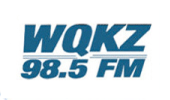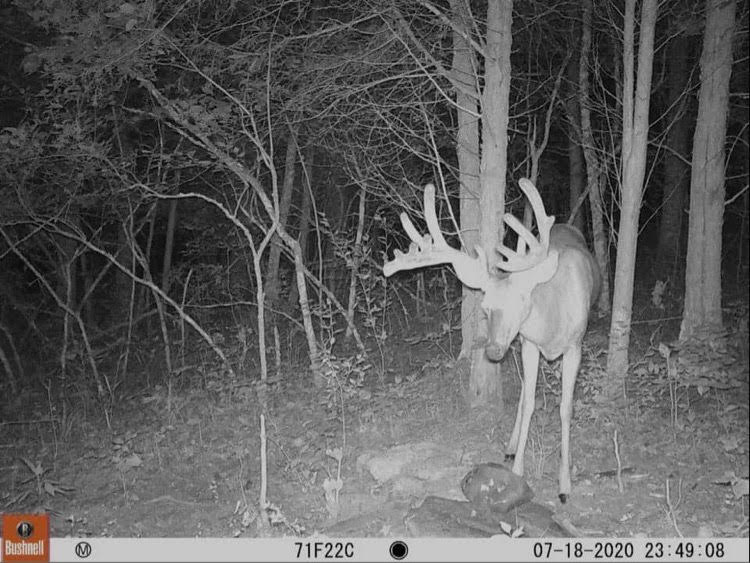Patoka Sportsman 8-15-20
Patoka Sportsman 8-15 & 8-16-20
Patoka Lake Cleanup Day will take place on Saturday, August 22 from 8:00 – 11:00a.m. in a
stash the trash and dash style. Due to Covid-19 and the practice of social distancing, participants
can meet an event coordinator at any of the following boat ramps to register: Painter’s Creek,
Osborn, South Lick Fork, Lick Fork, Newton Stewart or South Ramp. Quick Registration is
from 8:00 – 9:30a.m. Trash pickup will take place from 8:00a.m. – 11a.m. Trash bags and gloves will be provided. Plan to wear close-toed walking shoes, bug spray and bring long pants. Participants will be placed in locations based on family groups. Once you have collected in your area, you are free to head home. Due to Covid-19 there will be no formal meal or prize giveaways! For more information contact the Patoka Lake Nature Center at (812)685-2447.
Reserved hunt applications for dove, waterfowl, deer, and pheasant will be accepted until Aug. 17. Individuals must apply online for these hunts. To apply, go to on.IN.gov/reservedhunt and click “Apply for a reserved hunt.” Only one application per hunt is allowed, and no changes can be made once an application is submitted. Applicants must possess a valid hunting license for the hunt for which they are applying. To find out more about reserved hunt applications that are open or opening soon, visit on.IN.gov/reservedhunt. Reserved dove hunts will take place on Sept. 1st, 2nd, and 3rd.
State Park Deer management draw dates are November 16-17 for the early hunt and November 30-December 1, 2020 for the late hunt. Applicants must possess any valid license to take a deer in Indiana at the time of the application, not including apprentice licenses. Applicants must be Indiana residents (or possess a valid lifetime comprehensive hunting license to take deer in Indiana), be 18 years of age by the date of the first hunt, and must possess the proper licenses to hunt deer in order to apply. Once you have submitted your application online, you cannot change your information.
Primary applicants can apply by themselves or with up to two secondary applicants (buddies). There is no preference in the draw based on whether it is an application with buddies or not. You must apply with your buddies’ information included in your application in order for them to participate. This includes their Customer ID number and date of birth. A buddy cannot apply separately for that hunt period.
The secondary applicants must still meet all age, residency, and licensing requirements of the State Parks deer management hunts as described above.
Each applicant may appear on only one application per hunt period.
It is critical that thorough and valid contact information be included on the application for both primary and secondary applicants. If successfully drawn, key information regarding the management hunts may be sent to you using this contact information.
Firearm hunts include any firearm legal to take deer on public land in Indiana. Archery hunts include any archery equipment legal to take deer in Indiana, including crossbows.
For successful applicants, deer harvested at a State Park Management Hunt are in addition to regular deer-season bag limits. You do not need to purchase additional licenses to harvest deer if participating in the management hunt. For questions regarding State Park Deer Management Hunts, please contact DNR's Division of State Parks at 317-232-4200.
Available state parks locally in 2020 include Brown County State Park, Harmonie State Park, Lincoln State Park, McCormick's Creek State Park and Spring Mill State Park.
Volunteers can help DNR learn more about Indiana’s wild turkey populations by reporting turkey broods through Aug. 31. Each summer, wildlife biologists and volunteers conduct brood surveys, counting the number of young wild turkeys observed with turkey hens to estimate how many young turkeys live through the summer. Summer brood survival is one of the primary factors influencing wild turkey population trends in various regions of the state and informs wild turkey management.
Don’t wait until right before deer season, purchase your 2020-21 deer hunting license now. Season dates and answers to deer hunting FAQs can be found at deer.dnr.IN.gov. Deer licenses can be purchased at an authorized retailer or online at on.IN.gov/inhuntfish. Find instructions for getting started online. For additional assistance with user names or passwords, call 800-457-8283 for Access Indiana customer support. DNR is unable to assist with user names and passwords. More information about the Access Indiana portal, answers to FAQs, and other helpful information is available online.
Gray and fox squirrel hunting season begins Aug. 15 and runs through Jan. 31, 2021. Hunting seasons for rail (sora only), mourning doves, and snipe open Sept. 1. Check out this year’s season dates for early migratory gamebirds and remember to purchase your hunting license.
The new DNR Hunting & Trapping Regulation Guide will be available in late August. Pick up a copy at your local retailer or a DNR property. The new guide will also be posted online at hunting.IN.gov. If you don’t already have your Harvest Information Program (HIP) number for the 2020-21 migratory bird seasons, register now online or by calling 866-671-4499. It’s easy to register online, and there’s no cost for using either method.
Wildlife Management staff at Patoka Lake will conduct two separate in-person drawings for two controlled mourning dove hunting opportunities on Sept. 1, 2020. The drawings will begin promptly at 6:00 a.m. (EST) at the Archery Range Shelterhouse in Newton-Stewart State Recreation Area. The first drawing will be for a staked position in a controlled dove hunt field designated for Youth Hunters only. This drawing and hunt is intended for youth (ages 12 to 17) that are new to dove hunting, and are needing mentoring in the sport. Youth participating in this drawing will be required to show proof of their youth hunting license, and must have a parent or guardian with them while they hunt. Only youth will be allowed to hunt in this field, as parents / guardians are expected to mentor and teach their respective youth hunter. A maximum of two firearms will be allowed per staked position (i.e. one parent / guardian and two youth being mentored). Approximately seven (7) staked positions are expected to be drawn for this field on Sept. 1. The second drawing will be for a staked position in a standard controlled dove hunt field. Approximately 15 to20 staked positions are expected to be drawn, and there is a maximum of two firearms per stake allowed. Hunters are reminded to procure the proper licenses, stamps, and their federal HIP number. Hunters are also reminded that they are federally required to utilize non-toxic shot of size 6 or smaller, and have their firearm plugged so that the firearm can only contain three (3) shells at any time. Hunters participating in the controlled-hunt will be limited to 50 shells. Shooting hours for both of the controlled hunts at Patoka Lake on Sept 1, will be from 6:45 a.m. to 1:00 p.m. (EST). Both controlled hunt fields will be closed after 1:00 p.m. (EST). All fields surrounding the controlled sunflower field will be subject to similar time restrictions. There will be no “stand-by” or refilling of shooting stations for early departures on Sept.1, 2020. All sunflower and millet/sorghum fields will be considered open and subject to regular shooting hours starting Sept. 2, 2020. Regular shooting hours will be one half hour before sunrise to sunset through the legal season(s). Hunters should contact the Indiana Conservation Officers at (812) 837-9536 regarding specific questions on federal or state laws, statutes, and rules. Interested persons may contact the Patoka Lake Main Office between 8:00a.m. and 4:00p.m. at (812) 685-2464 if they require further information.
Indiana waters are home to nearly 30 different species of darters. Darters are members of the perch family, which contains the more recognizable walleye, sauger, and yellow perch. Darters look similar to these well-known sportfish; however, they don’t get as large. Few darters grow larger than 3-4 inches.
Three of Indiana’s 10 state endangered fish species are darters. Variegate darter, gilt darter, and channel darter were once much more widely distributed, but are now each restricted to only one unique river system in Indiana. The channel darter inhabits deeper waters of the mainstem Ohio River, and monitoring populations in this vast habitat requires some unique techniques. A Missouri trawl, specifically designed to sample smaller fish, is pulled by boat along the river’s bottom to net this tiny species for study. Many darters require special sampling practices to monitor their populations and determine their abundance.
Monitoring of Indiana’s endangered darter species is made possible by donations to the Indiana Nongame Wildlife Fund.




